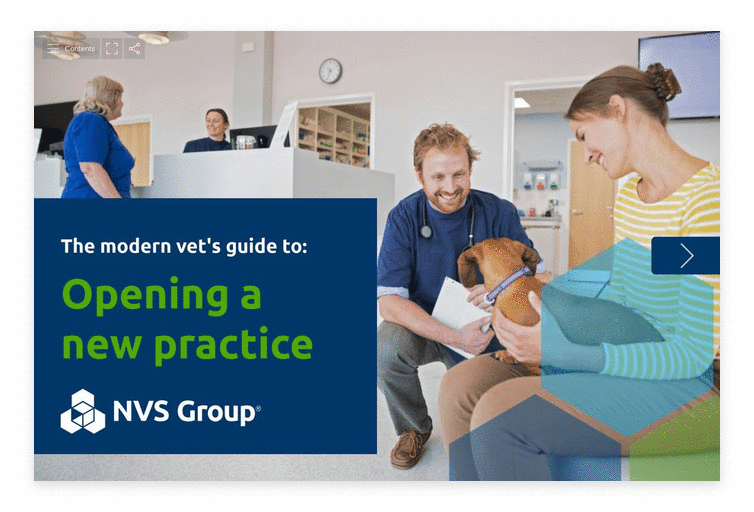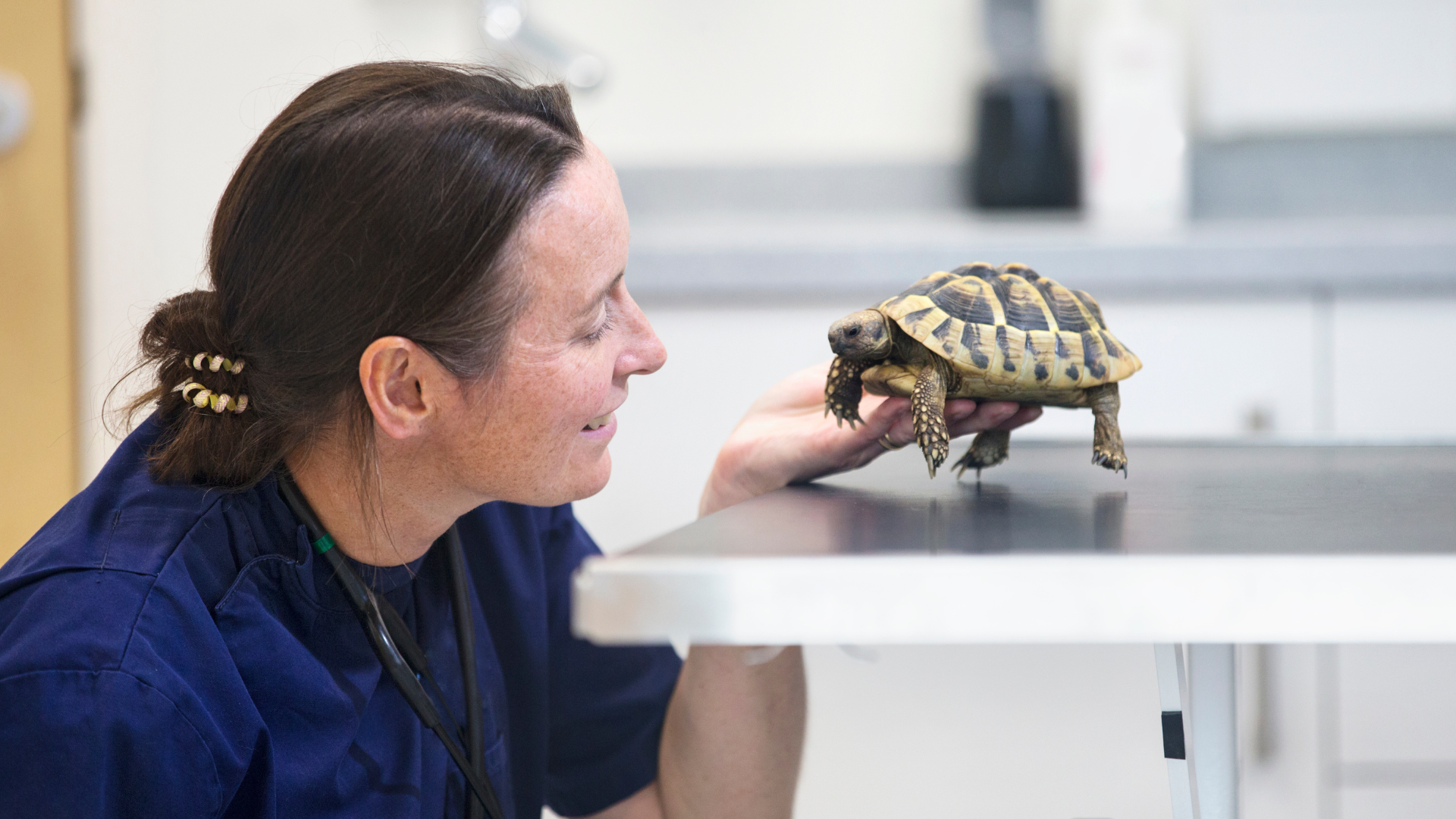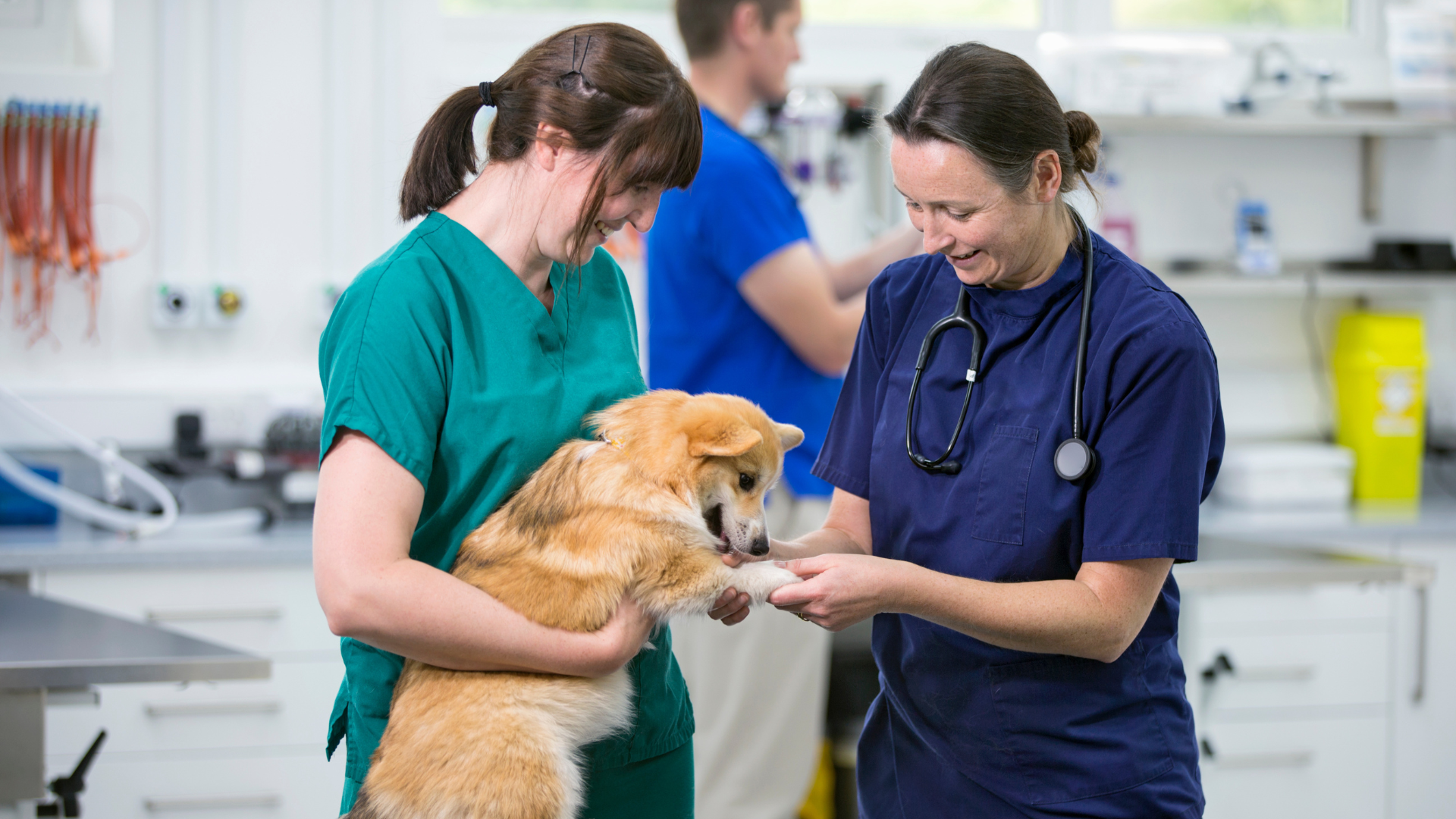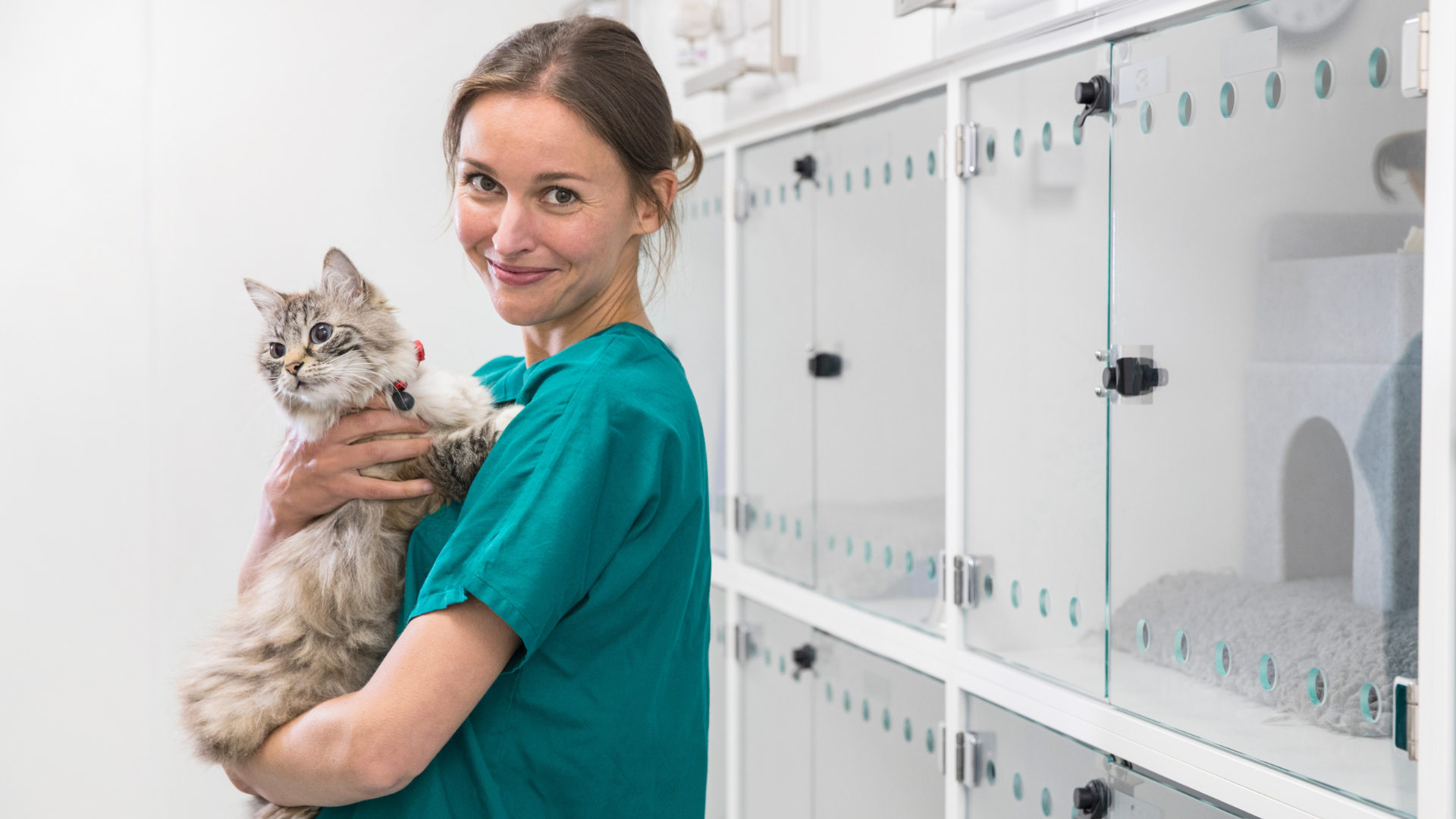
You’ve planned out your practice, but there’s one key area remaining – and it’s arguably the most important of all. Your team will form the heart of your practice, and it’s vital that they share your vision. Putting together your new team may seem simple in theory. You’ll need vets, nurses, receptionists and a few other support roles. In practice, however, it can be a lot harder than this to effectively plan and structure your team.
Vets
It’s fairly obvious what role your vets will play for the most part – but have you considered what roles they shouldn’t be taking on? From dispensing prescriptions to second vaccine appointments, dental charting and scaling to simple stitch ups, there are a whole host of tasks traditionally performed by vets that can be delegated to experienced RVNs.
Delegating effectively can help to free up your vets to use their time more efficiently, whilst also upskilling your nursing team and increasing job satisfaction. Your approach to delegation will strongly influence the ratio of vets to nurses you need, and how you allocate roles in practice.
When recruiting vets you’ll also need to consider their skills and experience levels. Are you keen to employ new or recent graduates? You’ll need to consider whether they can take on sole charge or whether they’ll need additional support for things like surgery.
If you’re planning to offer high quality diagnostics and hospital care, you may also want to consider recruiting vets with additional qualifications or interests in areas like imaging, medicine or surgery. While experienced vets may result in greater costs, they can generate substantial revenue, and offering a wide range of services can help to bond clients to your practice and improve satisfaction across the team.
Nurses
Determining the ratio of nurses to vets in practice can be tricky, and will depend hugely on your individual setup. In many practices, nurses carry out roles like cleaning and reception tasks. However, it’s increasingly recognised that RVNs’ time can and should be utilised more effectively, both increasing efficiency and improving job satisfaction. If you plan to offer nurse consults and encourage your nurses to take on tasks like stitch ups, radiography and dental cleaning, you’ll need to ensure you employ sufficient nurses to allocate to these roles.
Again, you’ll want to consider whether to take on and support student nurses alongside RVNs. This is one way to help build a strong nursing team over time, as recruitment can be competitive.
Veterinary Care Assistants (VCAs)
Also referred to as Animal Care Assistants or Animal Nursing Assistants, VCAs play an increasingly important role in practice. Roles historically allocated to nurses, including animal restraint, laundry, basic care of inpatients and even monitoring patients during recovery can all be delegated to suitably experienced VCAs. It’s important to have clearly delineated roles for nurses and VCAs to avoid confusion, either within the team or for clients. VCAs can be especially helpful during busy times, freeing up other staff and providing support wherever it’s needed, whether that’s taking calls on reception or assisting the nursing team.
When recruiting VCAs, you may want to discuss their long-term goals. Many veterinary nurses spend time as a VCA before starting nursing, and you may wish to support your VCAs with this.
Receptionists
Whether they’re fielding a constant stream of enquiries and phone calls, scheduling your appointments and operation lists, or helping to manage clients in reception and triage emergencies, receptionists can be the backbone of a busy practice. They also have one of the most public-facing roles in the practice, so having an effective, empathetic reception team can make a world of difference to your client experience.
While it’s essential to have enough receptionists that clients can easily reach you, as an interim measure you can ask a VCA or RVN to help out on reception at busy times – so consider starting small with your reception team and scaling up when it becomes necessary. Just make sure staff taking on reception roles have sufficient training to recognise emergencies, provide basic advice and know when to request a vet or nurse’s input.
The British Veterinary Receptionist Association offers a foundation course as part of its membership which acts as a great refresher and is also suitable for those new to veterinary practice.
Other roles: cleaning, HR, accountancy and marketing
Behind the scenes, there are a whole host of other roles involved in running a successful practice. Cleaning, for example, is a constant task and is essential both for biosecurity and to make a good impression on clients. It’s often easiest to outsource this to a cleaning firm after hours, although it may be best to have clinical areas like theatre and prep cleaned by practice staff. Alternatively, you may wish to employ a cleaner part time.
HR responsibilities include managing payroll, health and safety, employee leave and sick pay, managing whistleblowing, bullying, harassment and disciplinary proceedings, and ensuring the practice is GDPR compliant. This may also include rota management. While these roles can be delegated in practice, for example to an RVN, the alternative is to outsource them. Advantages of hiring an experienced HR specialist include a clear, structured approach, an outside input that doesn’t cause conflict within the team and the ability to delegate various tasks without further involvement. There are also software solutions, which can help with HR functions and wellbeing programmes.
Accountancy and marketing are typically best outsourced to an external provider, unless your practice becomes large enough that employing a bookkeeper or marketing team is a cost-effective option.
Practice managers
Employing a practice manager is one way to delegate some of the administrative tasks involved in practice ownership. This is a particularly good idea if you’re starting a practice on your own and want to maintain some clinical involvement, or if there are areas where you feel you would benefit from an experienced manager’s input. They will be able to handle some of the HR tasks outlined above, in addition to assisting with finances, marketing and client relations. In small practices, a vet or nurse may double up as the practice manager; however, this can introduce conflicts within the team and can place excessive pressure on individuals in busy practices.
Part-time and flexible working
Employees increasingly value flexibility in their working lives, yet this is frequently not an option in veterinary practices. Where possible, it’s worthwhile considering how you can structure flexibility into your roles from the outset. While this flexibility may make handling rotas trickier, it can have a huge impact on staff retention and job satisfaction. A larger team with more varied knowledge and skills can also be a useful resource.
Read more….
For more comprehensive information and to ensure you cover all aspects necessary for a successful launch, we invite you to read our Modern Veterinarian’s Guide to Opening a New Practice. An invaluable tool crafted by industry experts, it provides you with essential insights, best practices, and practical tips to ensure your success.






